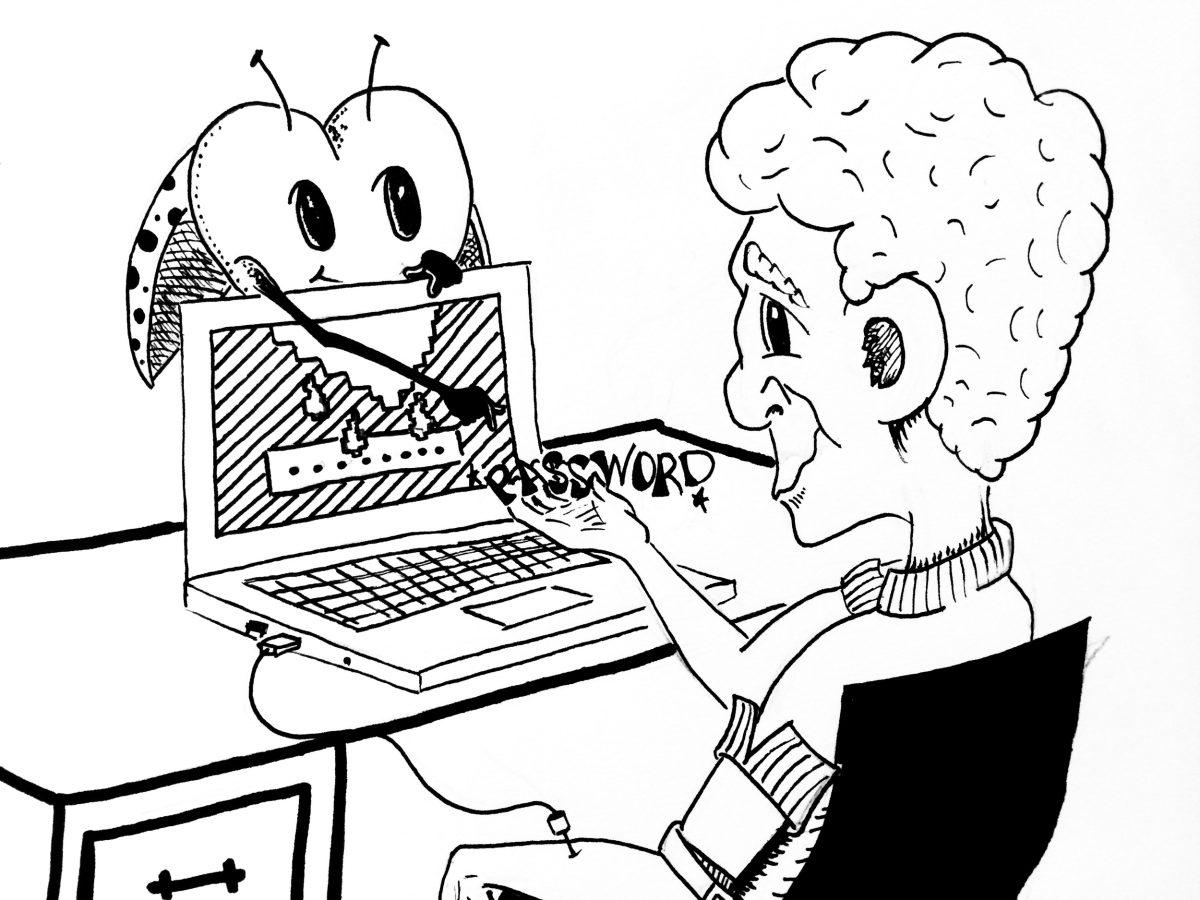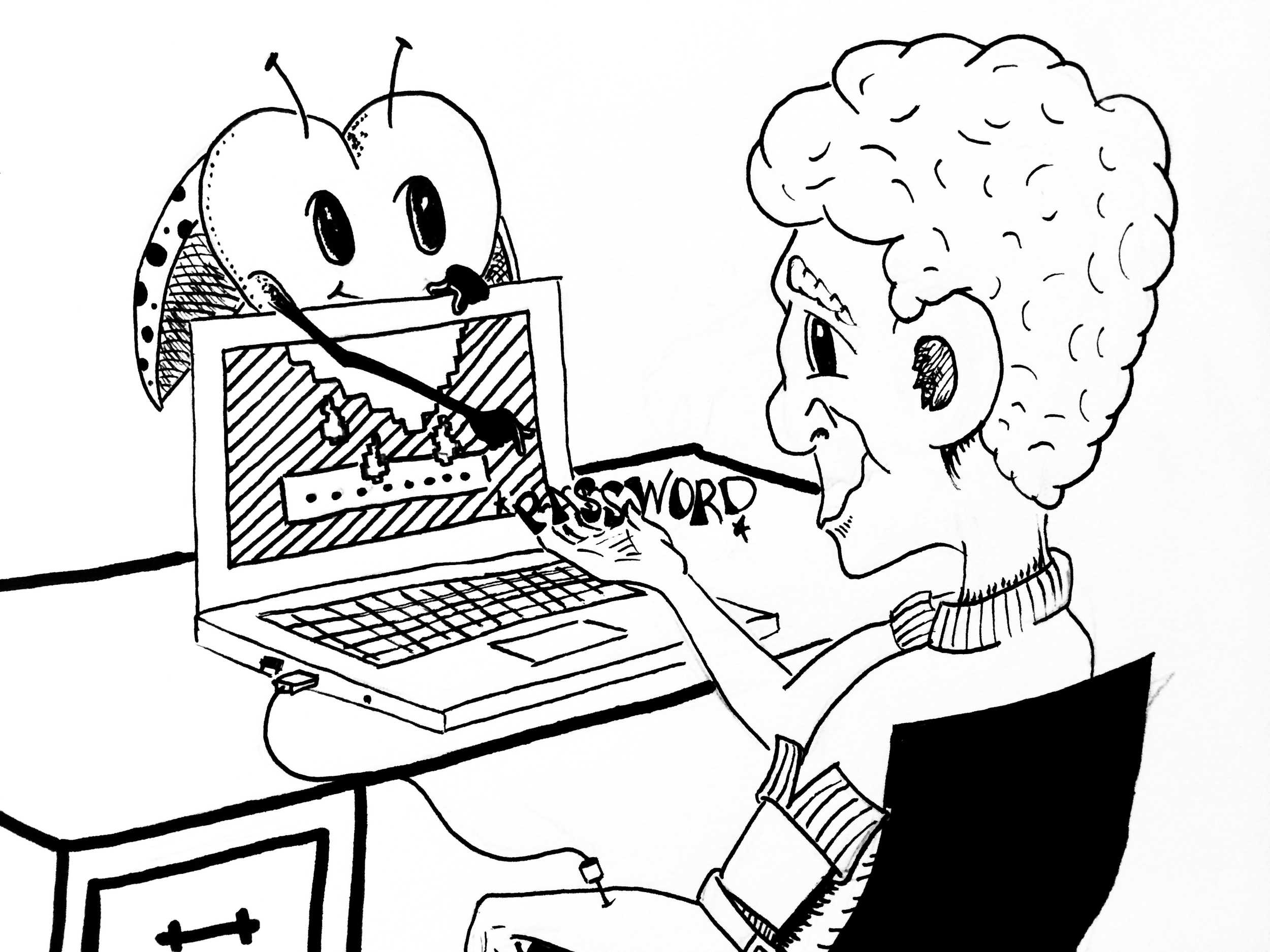Think back to how simple and low-tech your life was as a kid more than a decade or so ago. Then contrast that life to what it is today, where the Internet is something we’re so accustomed to that it’s completely embedded into our everyday lives.
Now imagine how long you could go without it.
No matter how many times we get frustrated by expiring Seawolf passcode alerts, it becomes more alarming and important to change our information when a new threat like the “Heartbleed” bug is born.
According to Forbes.com, Neel Mehta of Google Security discovered the defect: a security hole in the Open SSL library system (used for “secure” web browsing) that has been around for the past two years, leaving online passwords and e-mails in an exposed state.
Information Security Officer Andru Luvisi sent out a grave e-mail last Monday to all Sonoma State University students and employees addressing the glitch. She said the Information Technology staff assessed their servers and determined some used for verifying usernames and passwords were vulnerable.
“The vulnerability has been fixed, but the potential exists that an attacker may have compromised the passwords of some SSU community,” said Luvisi in the e-mail.
All employees are required to change their passwords by April’s close, where students will have to by the end of May. But if Heartbleed is as bad as it sounds, shouldn’t this adjustment be enforced as soon as possible?
While it’s understandable security breaches like this have been discovered and quickly mended in the past, it makes us question why it took so long to find Heartbleed. Many of these are updated often and companies pay for services to keep tabs on their security statuses.
Still, we had it coming eventually. How can anyone’s information ever truly be safe online? Software companies and websites can promise us this, but all they’re really selling is protection of mind, not identity.
The Internet is truly “The Wild Wild West” with no law or e-sheriffs to keep the bad guys at bay. No regulations—plus cute pictures of puppies—equal a digital playground where someone’s going to try to take your lunch money.
Many of us can’t see ourselves living without the Internet for a week, let alone a few days. It might be time to face the truth: we have an addiction. Sure, we joke casually about being hooked; but in reality, it is a dependence that our society isn’t ready to take seriously yet.
We are of the age when taking care of financial needs online, like shopping and banking, becomes the convenient route for many of us, but it’s scary to think of the consequences that may come from doing this excessively. In fact, going through financial transactions online is so easily convenient that many of us have fooled ourselves into thinking Internet crimes “won’t happen to us”—but unfortunately, they very well could.
The Internet is by no means safe, but common sense and a little caution go a long way. Here are some tips:
- If a site that has never asked for your bank information suddenly does, don’t just enter it.
- Look carefully at the URLs of the websites you’re using: www.facebook.com is Facebook. www.faecbook.com is not.
- If a video asks you to enter a CAPTCHA to view it, don’t; it’s using the “Enter” key as approval to access your account info, and as permission to post on your Facebook wall, thereby catching more victims.
- Don’t open e-mails or tweets from friends or followers that read, “I posted a picture.” Do your friends ever talk like that? Probably not.
- Use trusted sites like Amazon.com that offer recourse methods if you do get scammed. Don’t buy from websites you can’t verify.
- Watch your bank statements. The sooner you catch any issues, the easier it will be to fix them.
Since we’ve been able to watch the Internet evolve as much as it has, we should also realize how dangerous it could be. Next time we plan on trying to find Comic-Con or Coachella tickets online, we’ll be sure to take the cautionary steps to avoid a disastrous scam.





![[Both photos courtesy of sonoma.edu]
Ming-Ting Mike Lee stepped in as the new SSU president following Sakakis resignation in July 2022](https://sonomastatestar.com/wp-content/uploads/2024/04/CC4520AB-22A7-41B2-9F6F-2A2D5F76A28C-1200x1200.jpeg)



























